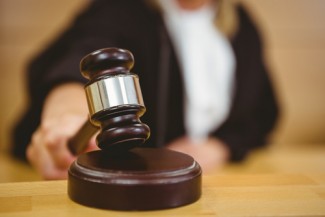Federal judge orders special master to investigate federal prosecutors after hard drive is erased

A federal judge in Kansas has ordered a special master to investigate federal prosecutors in Kansas in an expanding probe into how officials obtained and used recordings of lawyers meeting and speaking with their prisoner clients.
U.S. District Judge Julie Robinson ordered a special master who is already investigating the recordings made by a private prison company to investigate the conduct of prosecutors and of investigative government agencies. The Associated Press, the Kansas City Star and KCUR have stories.
In her order (PDF) on Wednesday, Robinson said there was “a good-faith basis for suspicion and concern” that the government had viewed and used the recordings, made at Leavenworth Detention Center. The prison was run by Corrections Corporation of America, a private prison operator that has since changed its name to CoreCivic Inc.
“There are grave concerns about government intrusion into attorney-client communications,” Robinson wrote.
Robinson said “critical evidence” had been destroyed—a computer used to play the video recordings had been wiped clean—despite her order for the preservation of evidence. The computer metadata could have revealed “when video recordings were played, perhaps by whom, and perhaps what video recordings were played,” Robinson said.
She directed the special master, David Cohen, to determine whether the government “intentionally and purposefully procured and obtained recordings of attorney-client communications, and whether intentionally, or not, the government listened, viewed and/or used such recordings.”
Questions to be addressed include whether the government used recorded information in its investigative strategy, its charging decisions, its defense of motions, its trial presentation or its plea negotiations.
Cohen’s initial investigation had found that more than 700 attorney-client visits at the prison were likely recorded on video, without audio. He also found that the government made audio recordings of more than 700 inmate calls to their lawyers on pay phones—including 188 calls made to lawyer numbers that had been designated as private and should have been exempted from recording.
Notice of the procedure to stop the recording of attorney phone calls was buried in a 30-page inmate handbook, Robinson said. Lawyers were not separately informed of the procedure, yet they had to provide their number to the prison to exempt their calls from recording.
The government had contended that the inmates had waived attorney-client privilege in phone calls that weren’t designated as private because they are warned that all calls are recorded or monitored.
“Needless to say,” Robinson wrote, “there are concerns about whether the government has listened to any attorney-client phone calls.”
Robinson also criticized the government for offering “inconsistent, inaccurate, or misleading statements” about their knowledge of video recordings, and whether they had been viewed or used. Though the video recordings did not contain audio, the body language could convey information to the government, Robinson said.
The recordings surfaced in a criminal case alleging the smuggling of drugs and other contraband into the Leavenworth prison.
U.S. Attorney Tom Beall made this statement to AP: “Our office has been cooperating with the special master all along—and we intend to continue doing so. That said, while this matter is pending before the court, it would be inappropriate for us to make further comment.”



